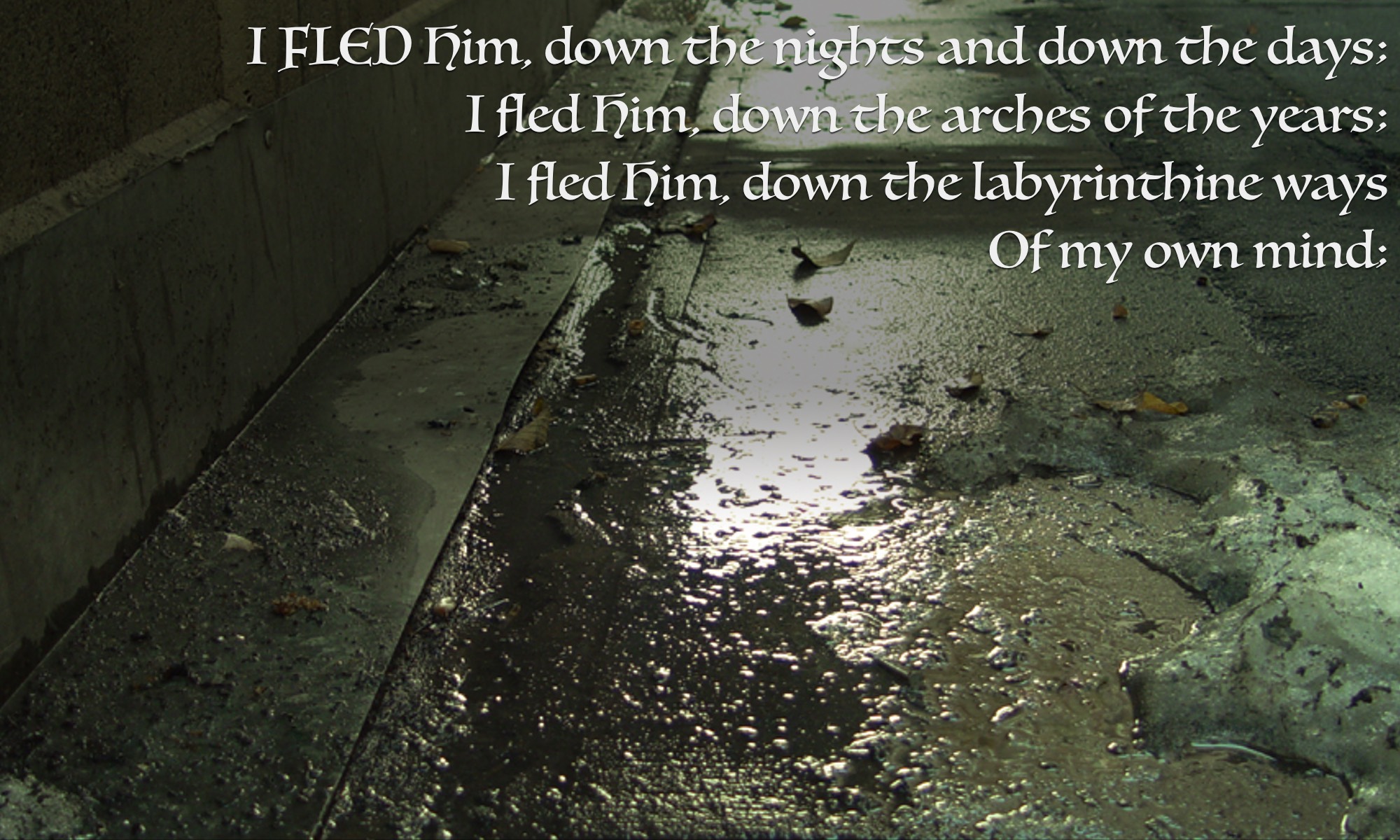There is a much-beloved poem that ends with the lines:
‘Ah, fondest, blindest, weakest,
I am He Whom thou seekest!
Thou dravest love from thee, who dravest Me.’
Francis Thompson’s The Hound of Heaven is one of the best poems to describe the pursuit of God on those who are running from the one thing they need, salvation through Christ. While studying in Luke, the story of Peter and the big-ol-catch-of-fish (your subheading may differ) came up. Immediately this poem came to remembrance. In the short passage of Luke, Peter sees who Jesus is, tries to “run”, and is called back to trust and follow Christ. Here is the poem if you haven’t read/heard it:
8 But when Simon Peter saw it, he fell down at Jesus’ knees, saying, “Depart from me, for I am a sinful man, O Lord.” 9 For he and all who were with him were astonished at the catch of fish that they had taken, 10 and so also were James and John, sons of Zebedee, who were partners with Simon. And Jesus said to Simon, “Do not be afraid; from now on you will be catching men.”
The Holy Bible: English Standard Version. (2016). (Lk 5:8–10). Wheaton: Standard Bible Society.
The words of Simon Peter, “I am a sinful man, O Lord”, are the words of a person who understands the true condition of their soul. “Depart from me” are the words of a person who understands the pure holiness of Christ Jesus, the Son of God. Religious leaders encountered Jesus, and when their sinfulness was exposed, the sought to kill Jesus by throwing Him off of a cliff. When a demon encountered Jesus, it scoffed at Him knowing that the two could not be in the same place, that evil and holiness could not occupy the same space. And then there is Peter, who, for the first time, understand his sin, his unholiness. Peter realizes that Jesus is different from the other Rabbis of the day. Jesus is God, He is holy in a way that only God could be holy, and this is what causes Peter to tell Jesus to go.
And then there are the words of Jesus, “Do not be afraid”. The reason to fear was that sinfulness in light of holiness equals death. The religious leaders knew that it was either them or Jesus. The demon knew that its fate was hell. Peter had every right to be afraid. He was a sinner. What Jesus did for Peter here is what He does to all of His children. He called Peter, told him not to be afraid, and then gave him a new purpose in life.
Jesus called Peter to change his life, not merely physically, but spiritually. This is what God does. He pursues. He calls. He tells us not to be afraid. He gives us a new purpose in life, one of service to Him. We may continue in our professions, but we continue as servants to Christ. We may even be called to a new vocation, still with the purpose of serving Christ. We saved from our sin. We are freed from the fear of death. We are tasked with proclaiming good news to the poor, liberty to the captives, sight to the blind, and liberty to the oppressed. This is our purpose. May we finish in faith.

